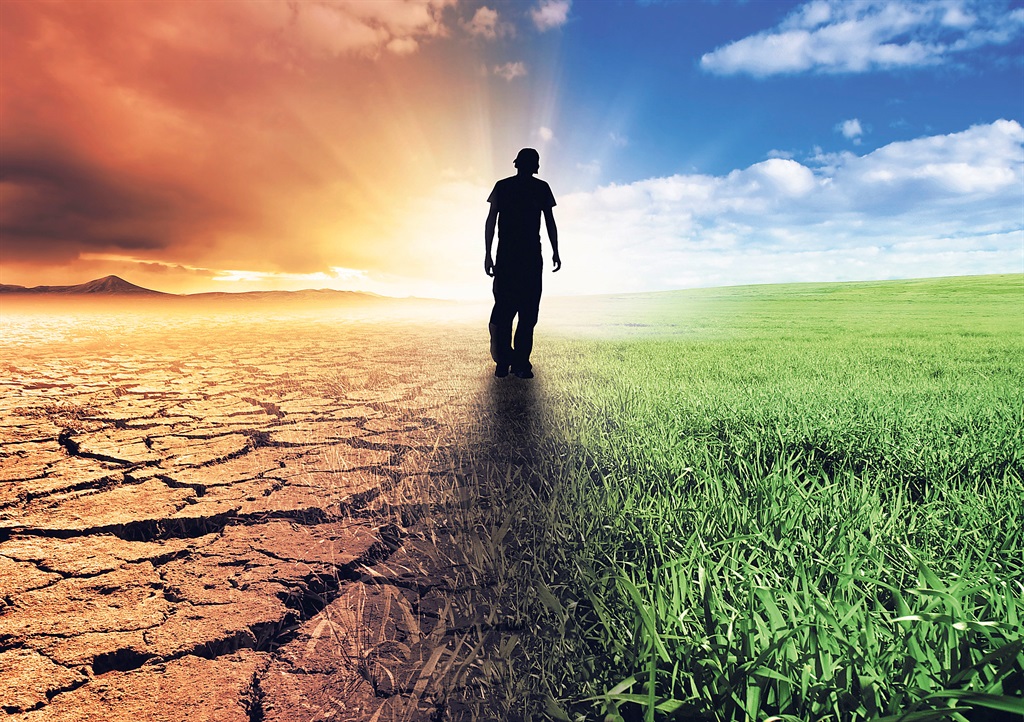
They’re planting urban forests, growing food in the city and harvesting their rain water.
That’s what some of the world’s major cities are doing to survive the effects of climate change.
More than 1 200 delegates at the fifth International Climate Change Adaptation Futures 2018 conference in Cape Town last week heard how, if projects like these are replicated on a massive scale, city residents across the world could insulate themselves against the worst of climate change’s impact.
Kevin Yates, deputy executive director at C40 cities, said to mitigate the extreme heat that climate change brings, Seoul, the capital of South Korea, “has planted 16 million trees and expanded its green space by 3.5 million square metres”.
Lima, the capital of Peru, has planted 42 600 trees to help stabilise hills and improve environmental quality and livability, including the restoration of public spaces.
When it comes to climate change, the world is in deep trouble and has to make radical changes to survive rising sea levels, droughts, floods, heatwaves and food shortages, the conference heard.
Rapid urban migration and growth is a major climate risk, with 67 million more urban dwellers a year around the world.
The growth of megacities has also rocketed from just nine in 1985 to 46 across the world today, making plans to survive climate change in cities a major priority.
Yates said New York City is strengthening coastal defences, building smaller, strategically placed local storm surge barriers to survive an increasing number of storms.
“On drought, Sao Paulo has set up schemes to incentivise citizens to use less water, just like Cape Town. On food security, Paris plans to establish 33 hectares of urban agriculture within the city by 2020.”
The UK capital of London is encouraging a decentralised energy supply, including the use of low carbon and renewable energy and energy generated from waste to reduce the risk of blackouts if a single power source is damaged, Yates said.
The city has developed its Sustainable Drainage Action Plan to improve city-wide drainage infrastructure to withstand heavy flooding.
Measures like these, Yates said, need to be replicated across cities at the “fastest possible pace”.
Tim van Hattum, project leader at Green Climate Solutions, said cities also needed to be redesigned to capture rain water, and investment in understanding the symbiosis between cities and their surrounding areas would be important in improving the “liveability” of cities.
Patrick Child, the EU’s deputy director-general of research and innovation, told the conference: “Climate change is already the cause of hunger and malnutrition for millions of people, many of whom live in Africa. Our planet’s temperature has already increased by 1.1°C above pre-industrial levels.”
“Monsoons, floods and droughts were recorded in big cities last year, including Cape Town, where for the first time a major city faced the real prospect of running out of water,” he said.
In February, a ship was able to cross the Arctic sea without an ice-breaker because sea ice was at a record low thanks to rising global temperatures.
“Last week, we learnt the Antarctic ice melting accelerated threefold in the last five years, and the familiar scenario of a 1 metre rise in sea level by the end of the century has been brought forward to no later than 2070,” Child said.
“Last year was also the highest documented in economic losses associated with severe weather and climate events, which now rate among the most significant risks facing humanity by the World Economic Forum.”
A report released at the conference about how climate change could impact on the world’s greatest cities, called The Future We Don’t Want, found that by 2050, climate change could affect 1.6 billion people in 970 cities who could face sustained extreme heat conditions of over 35°C for three consecutive months.
The report, a collaboration between the C40 Cities, Global Covenant of Mayors, Acclimatise and the Urban Climate Change Research Network, found that global water demand is expected to increase by 55% with more than 650 million residents of 500 cities vulnerable to reduced fresh water availability by 2050.
Hastings Chikoko, C40’s regional director for Africa, said: “The media made the Cape Town water issue seem like it was unique to the city, which I thought was unfair. Urban water systems around the world are already challenged. One in every four urban cities are already water stressed.”
Cape Town Mayor Patricia de Lille told the conference it would take three years before the city was able to deal with the climate change effects of its current drought.
“What we’ve learnt is that you have to walk the talk. There is no use complaining. We have to change the way we do things. We’ve reduced water demand from 1.1 billion litres a day to just over 500 000 litres a day.”




 Publications
Publications
 Partners
Partners








